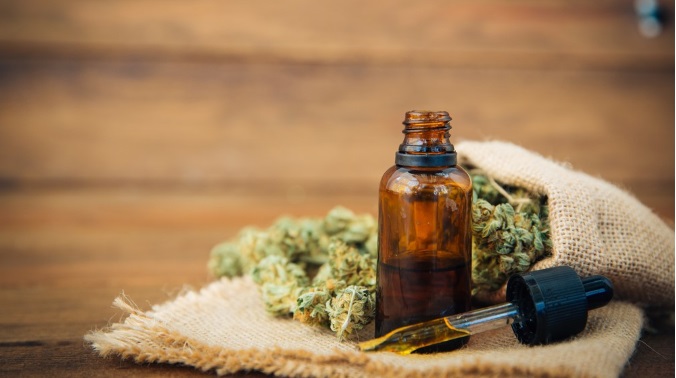According to the American Heart Association, approximately 77.9 million American adults have high blood pressure. People affected by this condition have an increased risk of stroke and cardiovascular disease. They may also face a shorter life span and see a decrease in their quality of life. The medical community routinely treats this condition through medication, diet, and exercise, but they may now have a new weapon to fight hypertension. A recent study has shown that cannabidiol (CBD) can reduce both resting blood pressure and blood pressure response to stress.
CBD Oil Blood Pressure Study Results
In a recently conducted study1 by investigators from the University of Nottingham in the United Kingdom, nine male volunteers were given either 600 milligrams of CBD or a placebo in a double-blind, crossover study. The results published in the Journal of Clinical Investigation showed that those taking the CBD had a statistically significant reduction in blood pressure.
During the study, a single 600-milligram dose of CBD was found to reduce systolic blood pressure by an average of 6 mm HG at rest. Lowering blood pressure by just 5 mm HG2 can lessen the risk of stroke by 34 percent and the risk of ischaemic heart disease by 21 percent. It can also decrease the likelihood of other complications that can result from high blood pressure like mortality, dementia, and heart failure.
CBD Also May Reduce Infarct Size
In addition to its potential use in lowering blood pressure as a preventive step toward heart health, CBD may also be useful in the prevention and treatment of myocardial ischemia reperfusion injury. Another study3 found that CBD produces a substantial cardioprotective effect from ischemia, reducing infarction size.
And, It’s an Anti-Arrhythmic
CBD may lower blood pressure, protect against ischemia and help regulate heart rhythm. A 2010 study4 found that not only does CBD reduce infarct size after an ischemic attack, it may also minimize the severity of arrhythmias during an acute attack.
How to Take CBD
CBD can be used in several ways. Some users apply it directly to the skin to be absorbed into the body. Others take CBD capsules or mix drops into their food or drink. CBD hemp oil is easy to use and affordable, even for people with limited financial resources. CBD does not have any dangerous side effects, but some users report minor issues with irritability, nausea, and sleep.
CBD Oil Conclusions
Although the medical community continues to research the efficacy of CBD, evidence of its effectiveness is mounting. The presence of a safe, affordable, and effective natural remedy for high blood pressure may seem too good to believe, but it is already here. Those with chronic medical issues can particularly benefit from this oil.
The prejudice against hemp and marijuana products has been waning in recent years as consumers have become more educated about their potential therapeutic benefits. CBD hemp oil will not make anyone high, and it is legal5 to use. CBD oil can provide relief to consumers that are suffering from a variety of conditions that adversely affect their quality of life. In fact, CBD may extend the lives of those suffering from high blood pressure and other serious illnesses.
References:
1JCI Insight. 2017;2(12):e93760. doi:10.1172/jci.insight.93760.
2Gaciong, Zbigniew, Maciej Siński, and Jacek Lewandowski. “Blood Pressure Control and Primary Prevention of Stroke: Summary of the Recent Clinical Trial Data and Meta-Analyses.” Current Hypertension Reports 15.6 (2013): 559-574. PMC. Web. 26 July 2017.
3Ronen Durst, Haim Danenberg, Ruth Gallily, Raphael Mechoulam, KerenMeir, Etty Grad, Ronen Beeri, Thea Pugatsch, Elizabet Tarsish, Chaim Lotan. “Cannabidiol, a nonpsychoactive Cannabis constituent, protects against myocardial ischemic reperfusion injury.” American Journal of Physiology – Heart and Circulatory Physiology Dec 2007, 293 (6) H3602-H3607; DOI: 10.1152/ajpheart.00098.2007
4Walsh, Sarah K et al. “Acute Administration of Cannabidiol in Vivo Suppresses Ischaemia-Induced Cardiac Arrhythmias and Reduces Infarct Size When given at Reperfusion.” British Journal of Pharmacology 160.5 (2010): 1234-1242. PMC. Web. 26 July 2017.
5Drug Enforcement Administration. “Clarification of the New Drug Code (7350) for Marijuana Extract.” Retrieved from: https://www.deadiversion.usdoj.gov/schedules/marijuana/m_extract_7350.html

